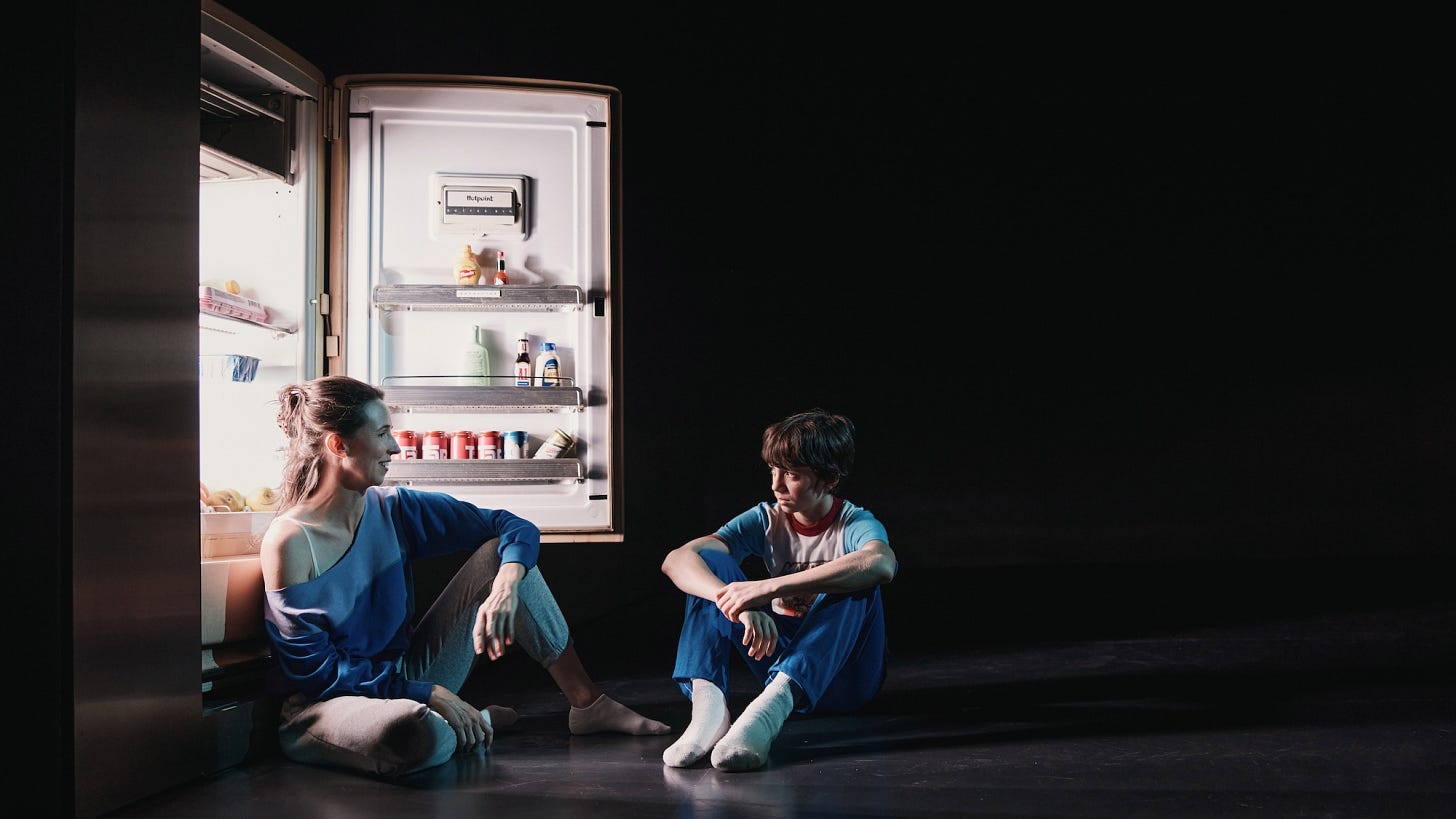The Antiquities: A Story of Doom, Grief, Connection, and Eternal Life
A Review of the Play "The Antiquities" by Jordan Harrison
🚨: Light spoilers.

Can humans’ desire to live forever be the beginning of their end? Jordan Harrison’s The Antiquities, which opened on January 11 at Playwright Horizons, tells us that humanity’s longing for eternal life will destroy us.
In the play, Mary Shelley tells a terrifying story by a fire in 1816. A man creates a robot that knows 400+ human phrases in 1978. And a granddaughter helps her grandfather record a voicemail greeting in 2008—Humans, whom Harrison gives roughly 200 more years to go extinct, have always striven to create ways to connect with one another and immortalize themselves, and technology might just be a tool to do that.

While the concept of computers taking over the world has now been overdone, it has never felt more relevant. With artificial intelligence being trained to write, draw, and even sound like human beings, factory workers are not the only ones at risk of losing their jobs to machines anymore. In this 95-minute play, everyone is at risk of being replaced, from the actor losing roles to flawless AI counterparts to the fiction writer consulting a surgeon before having a cherry tomato-size AI implant inserted in her brain. “If they can do everything that makes me me, then what’s the point of me?” she asks while sitting on the examination table.
This story goes beyond the typical doomsday tale by also exploring the link between grief and technology invention. In act one, a man who seems to be a Silicon Valley bro honors his deceased sister’s memory by naming his invention—an Alexa-esque virtual assistant—after her. In act two, the granddaughter from before listened to her now deceased grandfather’s voicemail greeting to feel connected to him. Additionally, a grieving mother and her son watch a pre-recorded soap opera on their TV. In these examples, technology is used to alleviate grief and immortalize a loved one.
We see humans’ desire to revert to the organic throughout the play. The climax is a post-apocalyptic world in 2076 when humans yearn for a time when religion was still relevant and people “looked at the sky to explain a storm.” They also dream of a time when our brains were quiet, without information overload or unlimited access to other people via text, or in the characters’ case, an AI implant that has replaced phones.

The impeccable performance of the nine actors,—Cindy Cheung, Marchánt Davis, Layan Elwazani, Andrew Garman, Aria Shahghasemi, Kristen Sieh, Ryan Spahn, Julius Rinzel, and Amelia Workman—who play 45 different roles, is noteworthy. The light work is also brilliant, with an open fridge’s light and a computer screen sometimes being used as the only light-source on the stage.
The Antiquities’ only flaw is its underestimation of its audience’s intelligence, similar to humans’ underestimation of its creation. Some of the underlying themes were over-explained, like Mary Shelley emphasizing that Frankenstein’s monster's self-given name is computer when the metaphor was clear by then.
The Antiquities uses multiple elements to transmit a sense of doom, but also appreciation for a species that wants to live forever. It leaves us wondering if we succeeded because, in the end, the creation, which outlives the creator, is the one teaching the audience about human history.
The Antiquities is now playing until March 2nd at Playwright Horizons in Manhattan.
Hi there! Thank you for reading. This is the first play review posted on Reading Into It. I hope you enjoyed it and that you consider going to see The Antiquities if you have a chance.




